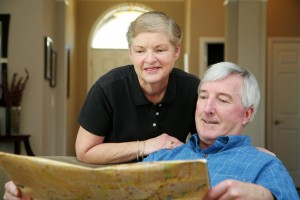Seniors and others with Medicare prescription drug coverage (Part D) should be aware of the coverage gap known as the “donut hole,” so that they can plan properly for the cost of their medication.
Most Medicare prescription drug plans have a “donut hole” coverage gap, which means that when you have spent a certain amount on medication, your coverage will be reduced until your costs reach a higher amount where coverage picks up again. The Affordable Care Act reduced the effects of the donut hole, but it can still result in a significant cost for seniors. Here is exactly how the donut hole comes into play with Medicare prescription drug coverage: 
First, you are responsible for 100 percent of your deductible (not more than $320 in 2015 and not more than $360 in 2016). After you have paid the deductible, you are covered (meaning you are only responsible for your co-payments or coinsurance), until you and your plan have spent a combined total on covered drugs that reaches a certain limit ($2,960 in 2015; $3,310 in 2016). Above that limit, you have entered the “donut hole” coverage gap.
Previously, Medicare Part D beneficiaries were responsible for paying 100 percent of drug costs in the donut hole. Now, under the Affordable Care Act, you pay 45 percent of the price for brand-name drugs; however, 95 percent of the price counts toward getting out of the donut hole. For generic drugs, you pay 65 percent of the price in 2015; that percentage will drop each year until it reaches 25 percent in 2020. However, for generic drugs, only the price you pay counts toward getting out of the donut hole.
You exit the donut hole when you’ve spent above a certain limit ($4,700 in 2015; $4,850 in 2016). At that point, catastrophic coverage begins, and you will pay a small copayment or coinsurance for covered drugs for the rest of the year.
Expenses that do not count toward the coverage gap include your monthly premium, pharmacy dispensing fees, and any amount you pay for drugs that are not covered.





 One year after the death of Robin Williams, a legal battle over his estate continues.
One year after the death of Robin Williams, a legal battle over his estate continues.


 Give certain assets away before any claims arise. When done properly, such a gift may succeed in transferring property while keeping it out of an estate that may face claims from creditors. However, creditors may try to claim the transfer is fraudulent if it is made after claims arise, if the gift makes you insolvent, or if you place limits on the gift such that you still maintain control over the assets.
Give certain assets away before any claims arise. When done properly, such a gift may succeed in transferring property while keeping it out of an estate that may face claims from creditors. However, creditors may try to claim the transfer is fraudulent if it is made after claims arise, if the gift makes you insolvent, or if you place limits on the gift such that you still maintain control over the assets.